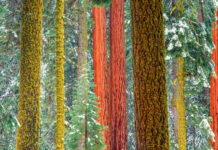‘Avocado Fennel Soup’ is rich in potassium, the perfect remedy for aching muscles.
Potassium is an electrolyte that helps muscle function. It is one of the numerous minerals needed by the body to prevent muscle cramps and spasms. Potassium can be lost in various ways, including through sweating, diarrhea and dehydration. Often, cramps occur after heavy exercise as the body loses potassium and other electrolytes through heavy sweating.
David Berkoff, M.D., assistant professor of surgery, Division of Sports Medicine and Emergency Medicine, Duke University, says that if an athlete does not adequately replace these losses during and after exercise, performance can be negatively affected. According to Mineral Resources International, the deficiency of these electrolytes can cause problems with the body’s electrical impulses and lead to muscle cramps.
Did you know, avocados contain 60% more potassium than bananas and more than 25 essential vitamins and minerals?
One serving of avocado, or about 1/5 of a medium avocado, contains 140 mg of potassium. An entire medium avocado contains about 700 mg of potassium.
Avocado Fennel Soup
Ingredients
1 large avocado
4 celery sticks (also high in potassium and vitamin C)
1 handful of fresh parsley (you guessed it – high in potassium)
1 clove of garlic
1 medium bulb of fennel
1 leek
Directions
Remove the stalks from your fennel bulb (keep the fronds), quarter and steam for 2 minutes until soft. Roughly chop the celery sticks and leek then add to a mix jug, along with whole avocado, steamed fennel, parsley and garlic. Using a stick blender, food processor or vitamix, blend all ingredients until smooth.
Top with fennel fronds and serve hot.
To learn more about this versatile fruit (that’s right avocado is not a vegetable), visit www.avocado.org or it’s aussie counterpart www.avocado.org.au

















